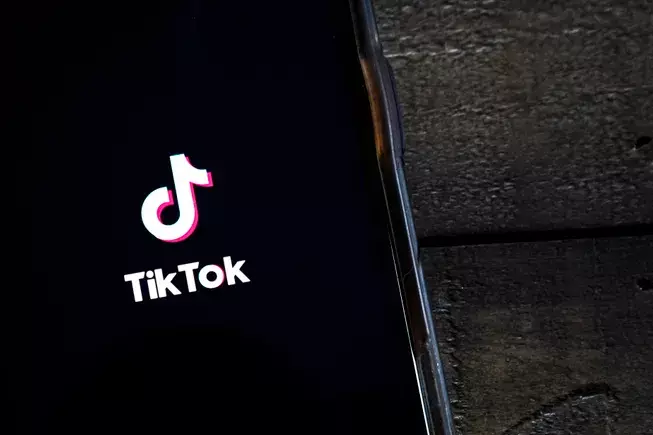TikTok, the popular social media platform, finds itself in a precarious situation as it grapples with governmental pressures, potential bans, and ownership changes. As of a recent announcement, the app may soon experience a temporary unavailability for its U.S. users, a development tied directly to legislative actions aimed at foreign oversight of American technology. This article explores the implications of these changes, the political backdrop surrounding TikTok, and the uncertain terrain ahead for both users and stakeholders.
As of Saturday afternoon, TikTok has begun notifying its U.S. user base about an impending lack of access due to the enforcement of a new law: the “Protecting Americans from Foreign Adversary Controlled Applications Act.” The legislation seeks to curtail the influence of foreign applications on American soil, with TikTok facing a mandate to either be sold to a U.S.-based company or cease operations within the country. This situation underscores the complex dance between technology, governance, and national security, highlighting how political decisions can directly impact digital landscapes.
Adding to the tumultuous nature of this environment is the Supreme Court’s ruling, which upheld this legislative framework, leaving TikTok with limited recourse. The app’s current predicament appears dire, with the forced sell-off looming ominously as the clock ticks down to midnight, the point at which the new law becomes effective.
The narrative takes a twist with incoming President Donald Trump’s indication that he may issue a 90-day reprieve for TikTok and its affiliated applications. Trump’s suggestions of a reprieve open the door for potential negotiations, referencing his own history with the platform, where he has gained substantial popularity. The convergence of personal brand and political power adds a layer of complexity, suggesting that his administration may seek to find a unique solution that reconciles the demands of the law with those of public sentiment and economic interest.
It’s crucial to recognize that the situation has nuances that extend beyond a simple ban or reprieve. While there are reports suggesting that the Biden administration might choose a more lenient approach, deciding to leave enforcement decisions on the app to the incoming administration, the current law on the books doesn’t provide much leeway. App stores themselves become the agents of enforcement against TikTok, and their hesitation to be penalized leaves little room for maneuvering.
The backdrop of TikTok’s struggles is steeped in a history of nationalistic sentiment and concerns over data security. The initial attempt to ban TikTok occurred under Trump’s administration in 2020, largely as a response to increasing tension between the U.S. and China amidst the COVID-19 pandemic. However, the impetus for that ban was contentious and didn’t stand on robust national security grounds. Ultimately, the courts found the evidence insufficient, leading the Biden administration to pull back on aggressive sell-off strategies in 2021.
Despite this lack of decisive action from the Biden administration, security agencies continuously raised alarms over TikTok’s potential dangers, asserting that there were instances of foreign groups utilizing the app to promote specific narratives or harvest user data. This persistent anxiety around cybersecurity and information manipulation implies that the discussion isn’t simply about one application; rather, it embodies broader concerns regarding technological sovereignty.
The current events surrounding TikTok raise significant questions about the future of the platform as a whole. If Trump manages to negotiate a new arrangement, either through a sale or as part of a broader diplomatic dialogue with China, it may allow TikTok to resume operations without interruption. However, the involvement of political interests could dramatically change the user experience and the application’s operational framework.
For the many users and creators who rely on TikTok as a platform for expression, communication, and income, the uncertainty is palpable. The suggestion that TikTok might only be down for a brief period paints a hopeful picture, yet the reality is that shifts in ownership and management can lead to radical changes in service, features, and data handling practices.
Bringing it all together, as the tensions surrounding TikTok evolve, it’s evident that the interplay between technology and governance continues to reshape our digital realities. While the situation appears to resolve shortly, the ongoing implications for security, ownership, and user rights will undeniably linger in the air, influencing broader discussions about the future of technology in a rapidly globalizing world.

